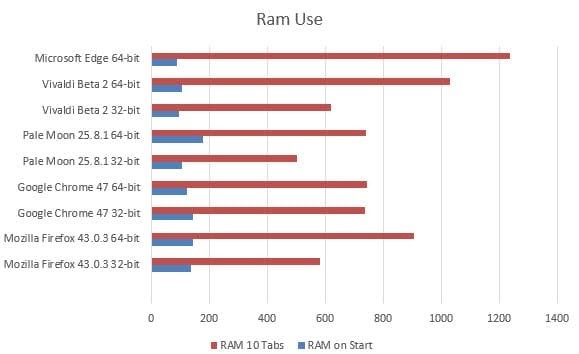Advantage Of 64 Bit Computer Architecture
To start with the advantages of one over another, you should understand what these are in the first place. x86 refers to 32 bit OS and x64 refers to a system with 64 bit. Here, a bit is a single character input (either 0 or 1). From this we can understand that a 2-bit system can be represented with 4 values and for a 3 bits system it can take 8 values, this tells us that with the increase in the number of bits, the number of values they can be represented with increases exponentially.
Hence you should understand that the number of bits any system works on is directly proportional to the amount of memory occupied by the system.

Now coming back to 64-bit and 32-bit processors, it is quite understandable that a 32-bit processor occupies around 4GB of RAM and that in a 64-bit one, around 16 BILLION GB of RAM (Woah, that's a lot now!). Hence one should not always go for the "bit" but also keep in mind about the RAM too. The main difference between these two is the speed they operate at. 64-bit processors can come in different versions for hardware engineering, redesigning, and also for the tasks with a demanding cache. Multiple cores allow for increasing the processing power and faster computer operation. Software programs that need many calculations to function operate faster on the multi-core 64-bit processors, for the foremost part. It is important to notice that 64-bit computers can still use 32-bit based software programs, even when the Windows OS may be a 64-bit version.
A 32-bit processor is adequate for any program written for a 32-bit processor. In the case of computer games, one will get a lot more performance by upgrading the video card instead of getting a 64-bit processor.

Now, how to choose the correct processor?
This is decided based on 3 main factors:
- Memory address: whether your work is done with the 4GB of RAM or more.
- Calculation Speed: the 32-bit processor performs calculations on the integers of 32 bits and hence is usually slow as compared to that of a 62- bit processor with calculates on data up to 64-bits and hence is super fast!
- NOTE: If you need to perform on say 32-bits only but you still want to use the 64 one, it will be just a loss in the memory as it will occupy a larger space.
- Operating System: now this is an important point to remember. if your OS doesn't support the processor you have (let's say, 64- bit processor) it simply performs similar to a 32-bit processor.
Some of the applications of the processors:
- Data storage
- data processing
- data transmission.
To conclude, both have their share of pros and cons and should carefully be informed of them. based on the three factors mentioned above, users' requirements, etc, one can go with one of them.
Related post
"Create the difference and be the change you want to see."






